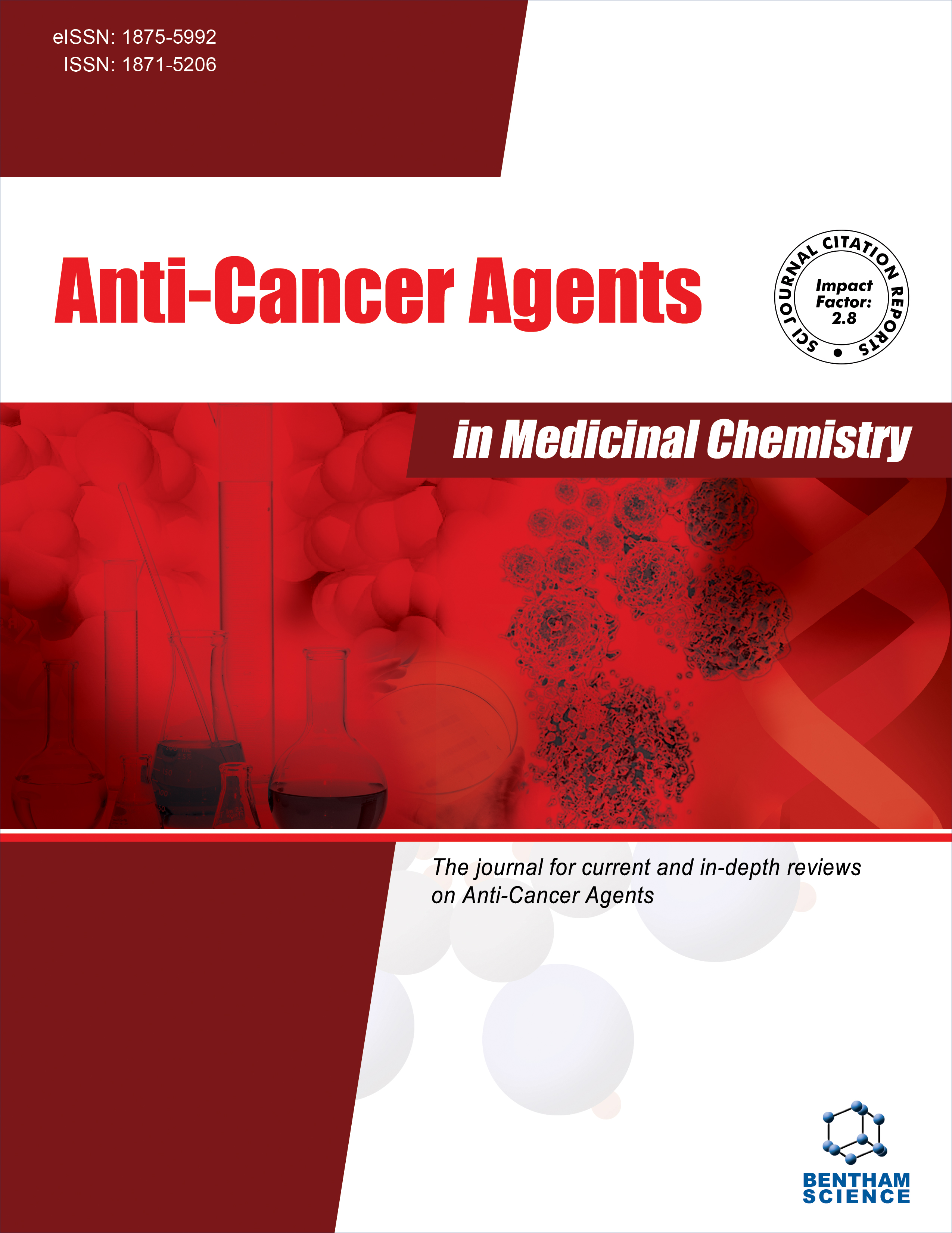-
s Propofol and Sevoflurane Alleviate Malignant Biological Behavior and Cisplatin Resistance of Xuanwei Lung Adenocarcinoma by Modulating the Wnt/β-catenin Pathway and PI3K/AKT Pathway
- Source: Anti-Cancer Agents in Medicinal Chemistry, Volume 22, Issue 11, Jul 2022, p. 2098 - 2108
-
- 01 Jul 2022
Abstract
Background: Recent studies have shown that propofol and sevoflurane, two common anesthetics, can prevent tumor development. The prevalence of lung adenocarcinoma in China is highest in Yunnan Xuanwei, and many patients with lung cancer in this area are often resistant to platinum-based treatments. Objective: The objective of the study was to investigate the effects of propofol and sevoflurane on malignant biological behavior and cisplatin resistance of Xuanwei lung adenocarcinoma. Methods: Herein, XWLC-05/R, a cisplatin-resistant cell line of XWLC-05 cells from Xuanwei lung adenocarcinoma, was constructed. The XWLC-05 cells and XWLC-05/R cells were treated with propofol and sevoflurane singly or as a combination and subjected to CCK-8 assay, clone formation tests, and flow cytometry analysis to assess the proliferation level of cells. The morphology and number of apoptotic bodies in XWLC-05 cells and XWLC-05/R were examined with a transmission electron microscope. The ANNEXIN V-FITC/PI and transwell assays were performed to evaluate apoptosis, invasion, and migration of the cells. Subsequently, we constructed a Xuanwei lung adenocarcinoma xenograft model to investigate the effects of propofol and sevoflurane on the tumorigenicity of XWLC-05 cells in vivo. Results: Treatment with propofol and sevoflurane significantly inhibited proliferation, invasion, migration, and induced apoptosis of XWLC-05 and XWLC-05/R cells. These effects were more pronounced when propofol and sevoflurane were co-incubated with the cells. Moreover, both propofol and sevoflurane significantly inhibited Wnt/β- catenin and PI3K/AKT pathways. Moreover, the two drugs effects suppressed the malignant biological behavior of XWLC-05 cells and XWLC-05/R cells, and this effect was counteracted by 740Y-P (PI3K/AKT pathway activator) and Wnt pathway activator 1 (Wnt/β-catenin pathway activator). In vivo experiments confirmed that propofol and sevoflurane alleviated the tumorigenicity of XWLC-05 cells. Conclusions: In summary, this study shows, for the first time, that propofol and sevoflurane decrease the proliferation, invasion, migration and induce apoptosis of XWLC-05 cells and XWLC-05/R cells by impeding the Wnt/β-catenin and PI3K/AKT signaling pathways, thereby alleviating the development of Xuanwei lung adenocarcinoma in vivo. Moreover, these effects are more pronounced when the two drugs are combined.


